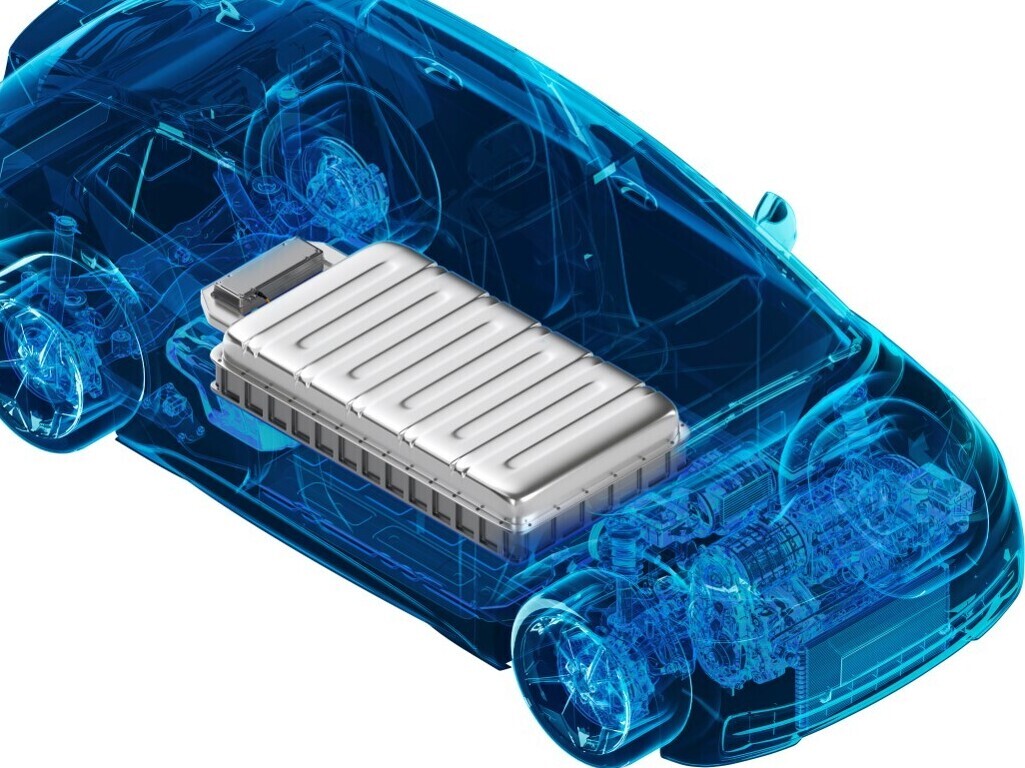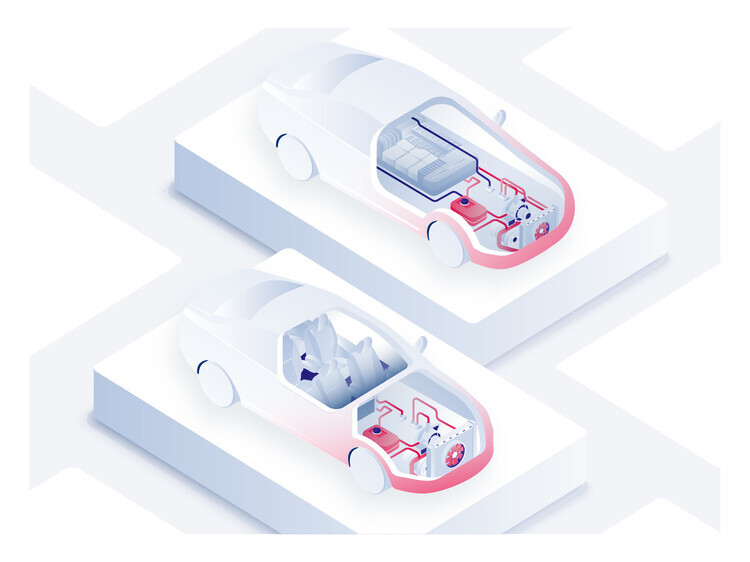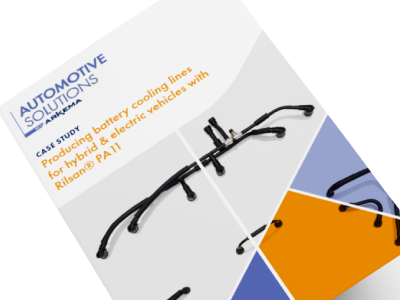Driver assistance and infotainment
High performance solutions for next generation vehicles
The automotive industry is continuously making strides in streamlining the driving experience with advancements in weight reduction, safety, energy consumption and passenger comfort. So much more than simply a means of transportation, next-generation light vehicles are an extension of the passenger’s connected lifestyle, seamlessly integrating the digital aspects of our social and professional lives thanks to ever-more sophisticated driver assistance systems. Arkema, pioneer in the engineering of innovative materials, is committed to pushing boundaries in driver-assistance technology and developing the finest in lighter, smarter and more sustainable vehicles.
Smart surfaces and haptics
Human-Machine Interface
Haptic technology enhances the human-machine interface (HMI) inside the vehicle cockpit, enabling seamless, non-visual communication and control. In the development of automotive smart technology, haptic feedback is typically incorporated into touchscreens, surfaces, displays, steering wheels through different actuating technologies. Arkema’s Piezotech® fluorinated electroactive polymers for haptic technologies are flexible, ultrathin, versatile actuators used in the development of haptic and HMI technologies.
Smart surfaces
Automotive smart-surface technology revolutionizes HMI by providing intuitive, personalized information and functionalities to enhance the driving experience. Arkema’s range of Piezotech® FC copolymers for smart surfaces are printable and flexible, with excellent chemical stability and high sensitivity. Piezotech® FC copolymers are perfectly suited for the fabrication of thin, flexible sensors for varied and unique applications. Versatile, mechanically sound and energy efficient with no need for an external power source, Piezotech® FC copolymers for sensor applications offer superior performance for the development of excellent-quality smart surfaces.
Smart adhesives for ADAS
Bostik engineered adhesives
Bostik smart adhesives have evolved along with trends in the automotive industry and continue to provide high-performance solutions used in robotic assembly lines worldwide. Bostik is an adhesives pioneer that adapts to emerging technologies while responding to customer preferences for efficient, more sustainable solutions. Bostik’s Hot Melt Polyurethane (HMPUR) and Water-Based Adhesive (WBA) adhesives are high-strength and extremely resistant solutions ideal for interior applications like ADAS and infotainment panel bonding. Applied with precision and minimum waste, these smart adhesive solutions offer superior-strength bonding for interior and exterior automotive applications.
Displays, cluster and decorative parts
Bio-based transparent polyamides
Boasting superior performance with a reduced carbon footprint, our Rilsan® Clear range of bio-based transparent polyamides offer users flexibility, stability and high chemical resistance. Already well-known in optics and consumer electronics, Rilsan® Clear G850 Rnew® and G820 Rnew® polyamides are more transparent than glass and extremely resistant to high temperatures thanks to excellent mechanical properties. Lightweight and fatigue-resistant, Rilsan® Clear polyamides offer long-term transparency and high gloss for use in a number of automotive applications, including HUDs and other onboard displays.
Learn more about Rilsan® Clear
Electronics wire and cables
Fluropolymer resins
Arkema’s Kynar Flex® resins and Kynar® PVDF resins are ideally suited for automotive applications where high chemical resistance, flexibility and temperature performance are necessary to withstand rigorous conditions. These fluoropolymer resins are used to fabricate jacketing material resistant to high temperatures, corrosion, sunlight and electrical arc tracking for wire and cable applications. Kynar® PVDF is particularly resistant to extreme heat, offering increased flame retardancy and abrasion resistance. Both Kynar® resins can be processed on standard equipment, and both are compatible with oil, fuel and automotive fluids.
EPDM for electronic cables
Through the chemical process of vulcanization, rubber molecules are heated with sulfur under pressure and cross-linked to improve the rubber’s elasticity, resilience and overall resistance to the elements. Arkema’s range of Ekaland™, Mixland® and Vultac® vulcanization agents for EPDM electronic cables offers users faster dispersion, increased efficiency and higher process consistency. The increased productivity at a lower cost also results in better economical performance.




